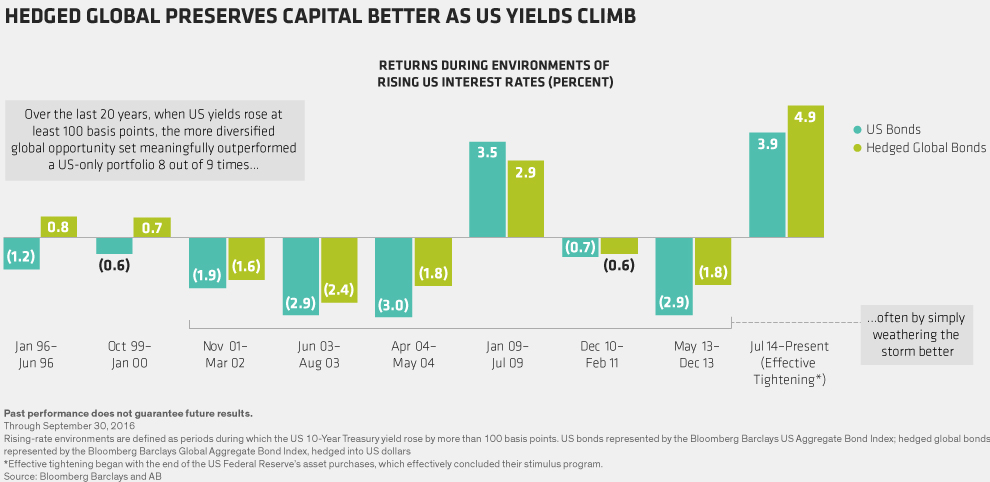What does the Italian “no” vote mean for the eurozone?
by Arnab Das, Head of EMEA and EM Macro Research, Invesco Fixed Income, Invesco Canada
Italians voted Sunday, Dec. 4, to reject changes to their constitution, leading to the resignation of Prime Minister Matteo Renzi and marking a victory for the country’s populist movement. Polls had suggested that Italian voters would reject the referendum on constitutional amendments to reform the Senate by a margin of about 10%. The turnout at 70% and margin of victory at 18% were both higher than expected.
Italian bonds, bank stocks fall, but rebound quickly
Despite the resounding rejection of Prime Minister Renzi’s market-oriented political reform efforts and his own immediate resignation, markets took the outcome in stride: The euro, Italian government bonds and Italian bank stocks suffered, but not as much as was feared, given the scale of the defeat, and have quickly retraced parts of their losses. In our view, the calm owes to a few key factors:
- The Senate reform was at best ambiguous, even though it would have made economic reform more likely in the short term by concentrating legislative power in the Chamber. The reform could have ended up undermining Italy’s membership in the European Union (EU) and the eurozone, and therefore global financial stability, by handing majority power to minority parties such as the euroskeptic Five Star Movement in future elections.
- The European Central Bank’s (ECB) €80 billion per month quantitative easing (QE) program is ongoing and is widely expected to be extended beyond its March 2017 expiry date, possibly with some tweaks to the rules, pace and duration of bond-buying to facilitate purchases amid a scarcity of bonds. An announcement is expected at its monetary policy committee meeting on Thursday, Dec. 7.
- So far, unexpected political outcomes have not translated into radical macro or market dislocations – for example, markets traded down sharply post-Brexit and the U.S. November election but rebounded quickly.
- Limits may be emerging to anti-establishment politics in Europe. In Austria’s re-run of its presidential election, also on Dec. 4, the far-right/anti-EU nationalist candidate was conclusively defeated by the Green Party candidate, running as an independent.
Invesco Fixed Income’s view
At Invesco Fixed Income, we expect Italy and, more broadly, Europe to muddle through economically and politically in the coming months, implying limited near-term risk of eurozone fragmentation or an Italy-specific financial or political crisis. Within Italy, the immediate focus turns to the banks (with some in urgent need of recapitalization), politics and reform.
Italy’s political risks will now hinge on the formation of a new government and its links to bank recapitalization. We expect Italian President Sergio Mattarella to try to establish a new caretaker government, quite possibly under the leadership of Renzi’s Finance Minister, Pier Carlo Padoan, to continue the bank recapitalization effort, undertake the 2017 budget process and, crucially, spearhead a new electoral reform – possibly moving in the direction of proportional representation rather than concentration of power in the leading parties. The good news in such a scenario would be that checks and balances would be maintained; the bad news is that the muddle-through scenario could extend for another year or more, delaying urgent economic reform and potentially hindering the eurozone’s return to price stability and more robust growth.
While the upcoming eurozone political calendar is crucial to monitor, the European focus in the short term is likely to shift from political issues back to macro developments – with hopes for U.S. reflation under the new Trump administration driving up global growth and inflation expectations and pushing up bond yields. Markets will likely be watching the ECB’s policy response at its Dec. 8 meeting. We expect some extension of the current QE program and tweaks to boost the flexibility of its bond-buying program.
Even so, the Italian referendum outcome is still another rejection of the status quo and of efforts to make the existing system work better, and signifies the direction of sentiment in Europe. As in the U.K. with Brexit, it represents political change over the status quo. Thus, we believe the risks of further anti-EU, anti-establishment, even anti-eurozone politics continue to lurk in Italy and the wider eurozone.
This post was originally published at Invesco Canada Blog
Copyright © Invesco Canada Blog













